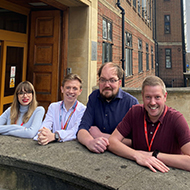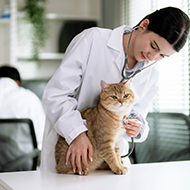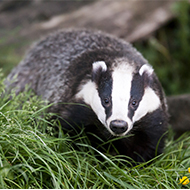"It is an incredible opportunity to advance our understanding of this ultra-rare bone disease" - Dr Tim Dreyer.
The project will explore Sclerosteosis and Ankylosing Spondylitis.
The Royal Veterinary College (RVC) is collaborating with the biopharmaceutical company UCB to research diseases of excessive bone formation.
In a new multi-year research project, the organisations will investigate therapeutic options and mechanisms of disease progression in two severe bone diseases characterised by bone overgrowth - sclerosteosis, and the inflammatory condition ankylosing spondylitis.
Dr Scott Roberts, senior lecturer in translational skeletal research at the RVC, said: “I am excited to be working closely with UCB and RVC colleagues to investigate why pathological bone is formed in ankylosing spondylitis and how excessive bone formation can be controlled in sclerosteosis.
“This research interaction will allow us to further our understanding of these specific diseases, with our accrued knowledge also likely to be applicable to other conditions of altered bone metabolism.”
Sclerosteosis is an ultra-rare genetic bone disease, in which patients experience widespread bone overgrowth as a result of the loss of sclerostin expression. The overgrowth of bone can result in severe, and even fatal, pressure on the brain due to increases in skull thickness. This can only be resolved temporarily through major surgery.
Ankylosing spondylitis patients also experience bone overgrowth, occurring most commonly in the spine. This overgrowth can lead to pain, bone fusion and deformity. The major change of structural tissue damage can result in permanent disability.
Over the course of three years, the team of researchers led by Dr Scott Roberts, will test potential new therapeutic options in preclinical models for sclerosteosis. Whilst ankylosing spondylitis already has approved therapeutics, the team will be researching why this bone forms using specialised disease models via human stem cells.
Dr Tim Dreyer, postdoctoral researcher and sclerosteosis patient, commented on the new collaboration: “As a patient myself, I am thrilled to be part of a collaboration that aims to potentially develop a therapeutic for Sclerosteosis.
“It is an incredible opportunity to advance our understanding of this ultra-rare bone disease, whilst providing hope for a small group of patients and their families.”
Senior vice president and head of discovery science at UCB, Dr Alistair Henry, added: “We are delighted to partner with the RVC on this important project to better understand disease progression in these two conditions.
“Although very different diseases, both conditions have a painful and progressive impact on those living with them and we hope this project may pave the way for treatment to improve people’s lives.”
Image (C) Royal Veterinary College







 The veterinary mental health charity Vetlife is inviting the veterinary community to join it for a sponsored cold-water dip.
The veterinary mental health charity Vetlife is inviting the veterinary community to join it for a sponsored cold-water dip.
